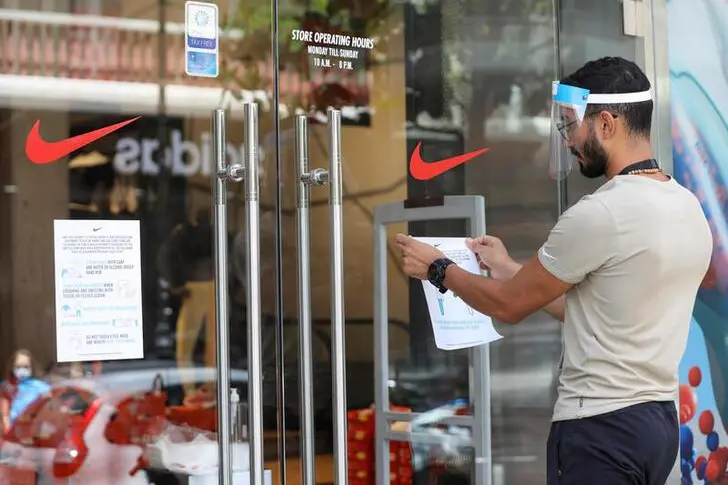PHOTO
BEIRUT: The government’s coronavirus follow-up committee has issued a series of recommendations to control the spread of the disease as more infections were recorded in all regions of Lebanon this week.
It has recommended closing bars, nightclubs and indoor pools, electronic games centers for children, children’s clubs, sports halls and popular markets, as well as banning beach parties and religious and social events for a week. It said that occupancy in restaurants should not exceed 50 percent of capacity in enclosed areas.
The recommendations, not yet endorsed by the relevant ministries, were formulated by specialized doctors.
The number of cases of COVID-19 infections in Lebanon on Saturday exceeded 3,400 while the death toll rose to 46.
The number of infections during the past week increased from an average of 75 cases to 166 a day.
Dr. Abdel-Rahman Bizri, a member of the national committee for infectious diseases, told Arab News: “If Lebanon continues to witness an increase in cases of infection, and as long as the Lebanese do not adhere to the preventive and precautionary measures, then we must get to this level.”
“We are currently wavering between the third and fourth phase in confronting the virus, which means that we reached the stage of societal reproduction because the virus is internally spread and not being transmitted by people coming from abroad,” he said.
Lebanon reopened its international airport on July 1 for commercial air traffic, with passengers required to be tested and proved free of the virus.
Dr. Ismail Sukkarieh, head of the health, rights and dignity commission, said that COVID-19 had regained momentum in Lebanon. “The state that is supposed to manage the health crisis lost its credibility. It did not allocate a specific hospital to receive those who have contracted COVID-19 nor did it train people on how to confront it. It is not true that government hospitals are prepared to confront the pandemic, while private hospitals have relinquished their responsibilities and the state was not able to force them to allocate special departments for people infected with COVID-19, noting that they are the biggest beneficiaries of state funds over long years.”
“The way the airport was reopened to the public was marred by chaos. There were frauds in PCR examinations, and no accountability measures were taken against the counterfeiters, and this proves that people in Lebanon are reckless in dealing with the disease,” he said.
“The state wanted to show itself as victor for reasons not related to health, but reality is different. We opened the airport, allowed weddings and gatherings, and the real situation was revealed.”
Meanwhile, the Ministry of Health, along with relevant security services, has seized tons of rotten and expired chicken and fish meat recycled in factories far from Beirut.
Dr. Zouhair Berro, president of the Consumer Protection Association, said it was “only the tip of the iceberg,” and that there were, in Lebanese warehouses, huge amounts of accumulated goods, many of which were sold to Syrian refugees. “The association had warned the Ministry of Health about the issue. What is the government waiting for to implement the laws of food safety, free competition and prohibiting monopoly?”
“There are crises of waste handling, electricity, bread and gasoline. Political parties are all warning of starvation while, at the same time, they are exchanging accusations while no one is held accountable for what has been committed.”
“Warehouses are full and there is no threat of shortage or starvation, rather there are monopolies, theft, fraud and privileged merchants, while the judiciary is absent and I do not know who would protect the citizens.”
Copyright: Arab News © 2020 All rights reserved. Provided by SyndiGate Media Inc. (Syndigate.info).





















